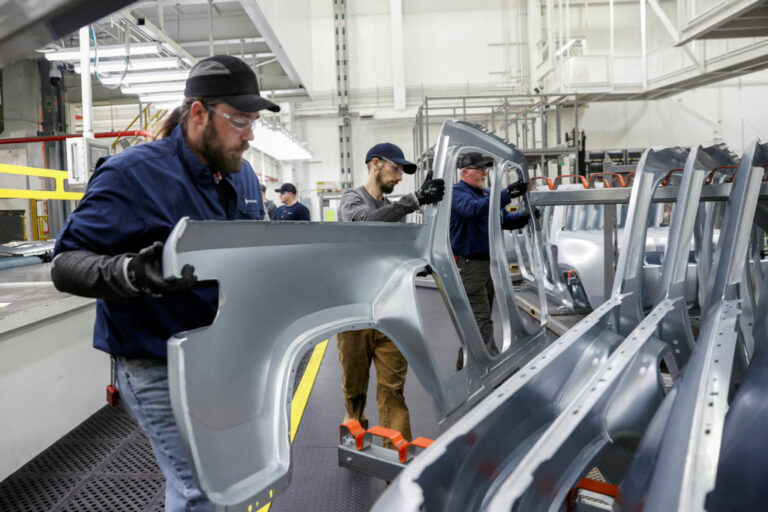WASHINGTON (AP) — President Donald Trump is expected to sign an executive order on Tuesday to ease some of the 25 percent tariffs imposed on autos and auto parts, according to the White House. This significant policy reversal comes after concerns were raised that the import taxes could harm U.S. manufacturers.
Impact of Tariffs on Auto Industry
The tariffs, imposed by Trump, were seen as potentially detrimental to the auto sector. Automakers and independent analyses warned that the tariffs could lead to increased prices, reduced sales, and make U.S. production less competitive globally. Arthur Laffer, who was awarded the Presidential Medal of Freedom by Trump during his first term, noted in a private analysis that the tariffs, without modifications, could add $4,711 to the cost of a vehicle.
White House Response
White House press secretary Karoline Leavitt announced at a Tuesday briefing that Trump would sign the order later that day, although details were not disclosed. Treasury Secretary Scott Bessent, who appeared alongside Leavitt, explained that the goal was to enable automakers to create more domestic manufacturing jobs. “President Trump has had meetings with both domestic and foreign auto producers, and he’s committed to bringing back auto production to the U.S.,” Bessent said. “So we want to give the automakers a path to do that, quickly, efficiently and create as many jobs as possible.”
Changes to Tariff Enforcement
The Wall Street Journal reported that the executive order involves changes in how the import taxes are enforced to prevent multiple tariffs from being charged on foreign-made vehicles. Additionally, the tariffs on parts imported to manufacture autos domestically will be reduced. These changes will also be applied retroactively.
Broader Economic Implications
The modifications come as Trump marks his 100 days back in the White House by visiting Michigan, a state heavily reliant on auto manufacturing. Trump won the state in the previous year’s election by promising to increase factory jobs. However, the overall impact of Trump’s broader tariffs on the U.S. economy and auto sales remains uncertain. Most economists agree that the tariffs, which could ultimately affect most imports, would raise prices and slow economic growth, potentially hurting auto sales despite the administration’s intended relief on previous policies.




